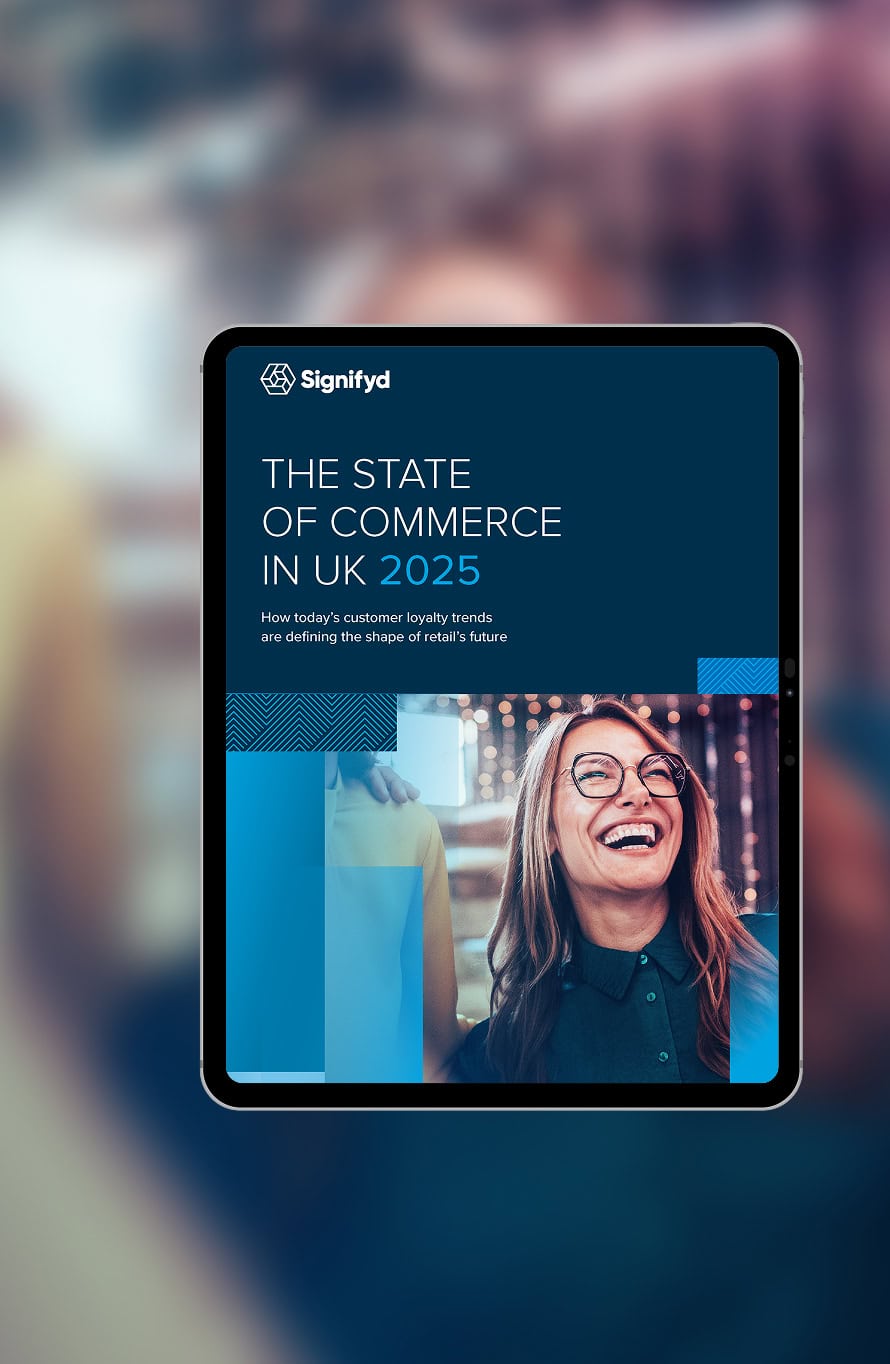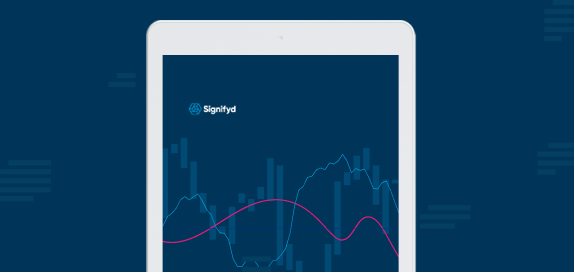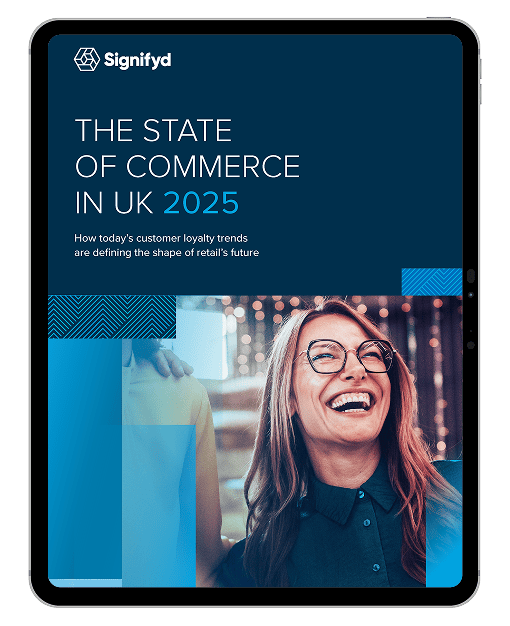
Building trust in every transaction
The UK State of Commerce 2025
The UK and EMEA ecommerce landscape is evolving, with shifting consumer behaviour, rising fraud threats and new opportunities for global expansion. While domestic growth remains slow, cross-border sales are increasing, highlighting international markets as a key growth driver.
At the same time, first-party fraud and refund abuse are on the rise, and upcoming Visa policy changes will make chargeback management more challenging. Retailers must adapt to protect revenue while delivering seamless customer experiences.
Key ecommerce trends within the report
The ecommerce landscape in the UK and Europe is evolving rapidly as consumer behaviour shifts, fraud tactics become more sophisticated and regulatory changes force retailers to rethink their strategies. In 2024, merchants navigated an increasingly complex environment, balancing economic pressures with new opportunities for international growth.
Despite a slower 1% year-on-year (YoY) increase in UK online sales, the broader EMEA market expanded by 7%, signalling resilience in key regions, according to Signifyd’s recent data. Consumers are spending more per transaction, with the UK’s average order value (AOV) up 7% YoY, but they are checking out less often.
UK ecommerce sales — last 12 months
*From Signifyd data
EMEA ecommerce sales - last 12 months
*From Signifyd data
UK ecommerce cross-border transactions are set to increase in 2025
As domestic markets slow, ecommerce cross-border sales are becoming a major growth driver for UK and EMEA retailers. With UK cross-border sales up 4% YoY and EMEA-wide cross-border growth reaching 6% YoY, international expansion presents a clear opportunity. However, success depends on localised payment strategies, efficient logistics and robust fraud prevention.
UK ecommerce cross-border sales up 4% — last 12 months
*From Signifyd data
EMEA ecommerce cross border sales up 6% — last 12 months
*From Signifyd data
How strong customer authentication is fueling first party fraud in Europe
Let’s start with the friendly fraud spike. The promise of strong customer authentication (SCA) is finally taking hold, easing the fraud threat it was meant to tame. In response, fraudsters — having been more often stymied at checkout by SCA — have spread their attacks to more vulnerable points along the shopping journey.
“Fraud and abuse moved away from checkout towards the pre-purchase and the post-purchase side,” explained Xavi Sheikrojan, Signifyd’s senior manager, risk intelligence.
Sheikrojan said one result is a rise in account takeover and phony account creation in the pre-purchase stage. As for the post-purchase stage?
“Here is where it gets interesting, because here's where we see new and different types of fraud and abuse arising — so fraud and abuse that's happening beyond the ‘buy now’ button: return abuse, refund abuse, reseller abuse, promo abuse. You name it,” Sheikrojan said.
Signifyd Senior Manager, Risk Intelligence Xavi Shiekrojan, talks through how the implementation of strong customer authentication (SCA ) in Europe has pushed fraudsters and professional fraud rings to attack other points along the customer journey.
Abuse is on the rise, he says, and ecommerce fraud is not going away.
Xavi Shiekrojan, Signifyd Senior Manager, Risk Intelligence
Customer lifetime value rules in 2025
If you were starting a list of ecommerce buzz phrases for 2025, it’s doubtful “customer lifetime value” would make the cut. It’s a term that has been thrown around for years and an outcome that for just as long has been hard to measure.
But this year makes a compelling case to move beyond CLV lip service and hold the metric up as a guiding light for retail success. The change is born of four developments:
Ecommerce has entered a new era: Investors are demanding that the retailers they invest in transform their mindset from the pandemic days of growth at any cost to profitable growth for the long haul.
Consumers are looking to build relationships with retailers that put customers first in terms of experiences and convenience. And not just any relationships. Consumers want relationships built on trust. That yearning provides a powerful differentiator for any retailer willing to put in the work to establish it.
The tools for merchants to build those relationships are out there. A slew of companies have emerged to provide AI-driven solutions that help online merchants determine what shoppers want and need in the moment, whether they are searching, browsing, checking out, seeking customer support, asking for a refund or returning a product.
And finally, reliable formulas for tracking CLV are available given modern businesses' agility with data and insights into consumers’ behavior and desires.
Canadian Tire’s loyalty gamification strategy
Rising trend in returns fraud for UK merchants
2024 was a year of returns drama: Asos and Zara began charging a fee for some online returns. Boohoo’s prettylittlething also implemented a returns fee before ending the charge for some of its best customers. H&M had a similar returns-fee flipflop. The back and forth is understandable as online retailers grapple with one of the most nettlesome problems in ecommerce.
Global retailers are expected to face £779 billion in related return-costs by the end of the decade.
Serial returners will return about £6.6 billion in goods, The Guardian reports. While such returners make up 11% of shoppers, they account for 25% of returns. Despite the cost and aggravation those returns cause, the majority are likely made in compliance with retailers’ return policies.
UK ecommerce merchants could face more difficulties with the new Visa acquirer monitoring program (VAMP)
The updated Visa Acquirer Monitoring Program (VAMP) is scheduled to take its place on April 1, with the same general goal in mind. As with the current programs, exceeding VAMP’s thresholds could result in heavy penalties or ultimately the loss of a merchant’s ability to accept Visa payments. VAMP, as it’s being called, will be more severe than the existing programs in many respects.
Xavi Shiekrojan, Signifyd Senior Manager, Risk Intelligence
UK State of Commerce Report 2025
The UK and EMEA ecommerce landscape is evolving, with shifting consumer behaviour, rising fraud threats and new opportunities for global expansion. While domestic growth remains slow, cross-border sales are increasing, highlighting international markets as a key growth driver.










